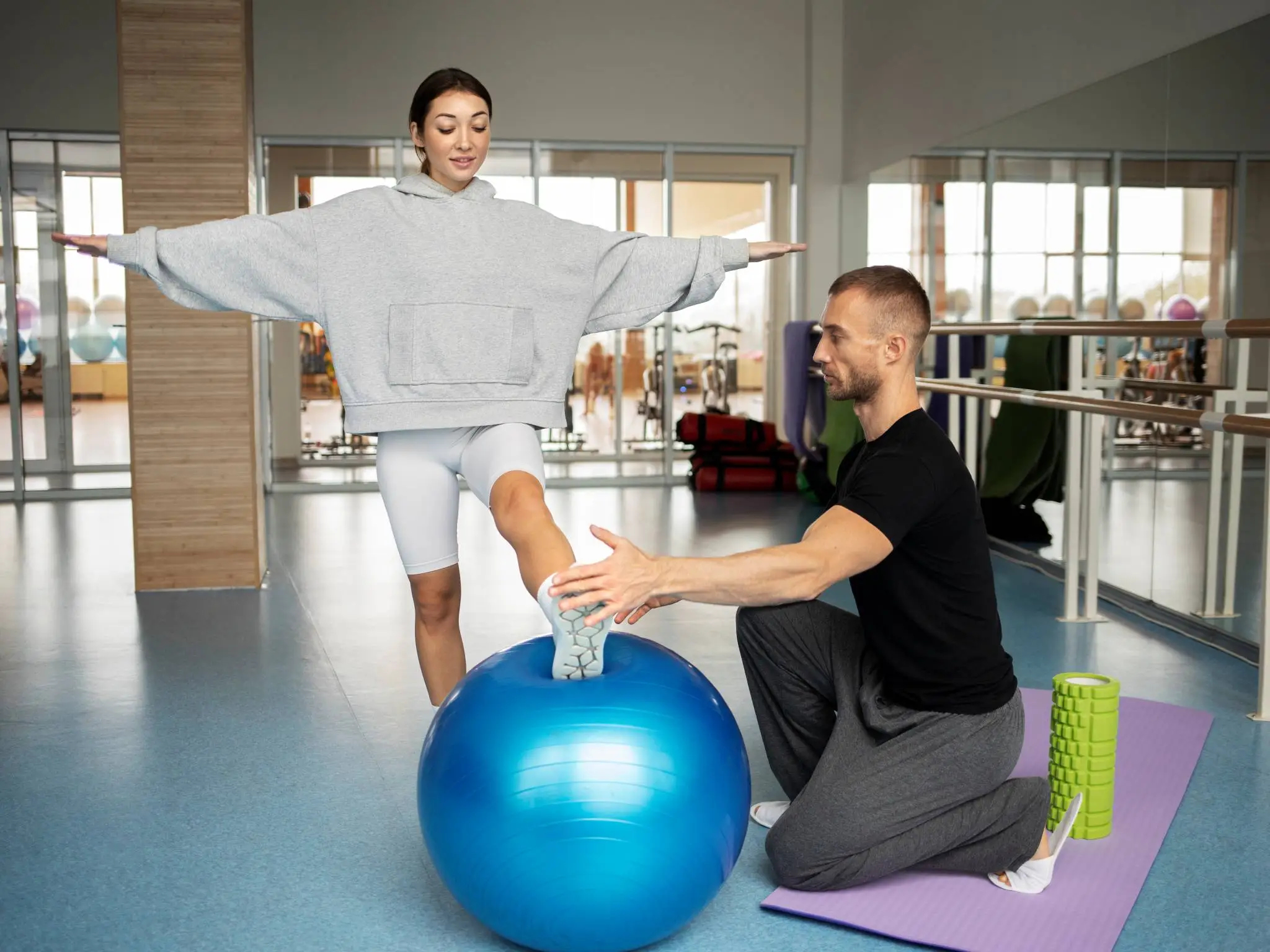Peeling Back the Layers: Balance and Coordination in Physical Health
Balance and coordination are essential components of our everyday lives, impacting everything we do, from walking and running to carrying groceries or playing a sport. They are foundational elements of our physical health, rooted in the interplay of multiple body systems, including the visual, vestibular, and musculoskeletal systems.
Poor balance and coordination can lead to a variety of issues like difficulty in performing daily tasks, increased risk of falls, and decreased confidence in physical abilities. By understanding and improving these aspects, we can greatly enhance our mobility and overall well-being.
The Intricacies of Balance and Coordination
Balance, in the simplest terms, is the body’s ability to maintain its center of gravity over its base of support. Meanwhile, coordination is the ability to execute smooth and accurate motor tasks by integrating sensory information with motor output.
As we age, our balance and coordination can naturally decline, mainly due to the loss of muscle mass and strength, decreased joint mobility, and changes in the sensory systems. This underscores the importance of maintaining and enhancing these abilities, regardless of our age.
Assessing Where You Stand
Understanding your current level of balance and coordination is the first step towards improvement. There are several self-tests that you can perform at home, like the Romberg test or the single leg stand test. These can give you a basic understanding of your balance and coordination abilities.
However, it’s important to remember that self-tests are not a substitute for professional evaluation. If you’re experiencing frequent falls, dizziness, or have trouble performing daily activities, it’s advisable to seek help from a healthcare professional like a physiotherapist. They can provide a comprehensive assessment and a personalized plan to improve your balance and coordination.
Exercises to Boost Your Balance and Coordination
Balance improving exercises and activities can play a crucial role in enhancing your mobility and physical health. Here are some exercises that you can incorporate into your daily routine:
– Heel-to-toe walk: This simple exercise can help improve your balance and coordination by challenging your stability.
– Leg lifts: Standing on one leg and lifting the other can strengthen your lower body and improve your balance.
– Tai Chi: This ancient practice is known for its benefits in improving balance and coordination, as well as overall physical health.
Lifestyle Modifications to Enhance Balance and Coordination
In addition to exercises, certain lifestyle changes can also help boost coordination and balance. These include:
– Maintaining a healthy diet: Eating balanced meals rich in vitamins and minerals can support your overall health, including your balance and coordination.
– Stay Hydrated: Dehydration can affect your balance and coordination. Make sure to drink plenty of fluids throughout the day.
– Get Regular Check-ups: Regular health check-ups can help identify any potential issues that could affect your balance and coordination.
Remember, enhancing your balance and coordination is a journey that requires consistency and patience. But with the right approach and guidance, you can significantly improve your mobility and overall physical health.
Techniques to Improve Balance
Balance is an essential component to overall health and fitness. There are various exercises across various levels that can assist in improving balance.
Beginner Level Exercises
For beginners, starting with simple exercises is key. Some effective ones include heel-to-toe walk, leg lifts, and standing on one foot. These exercises help train your muscles and brain to control your balance.
Intermediate Level Exercises
As you improve, intermediate exercises like yoga poses, tai chi movements, or balance board exercises can be incorporated. These exercises further challenge your balance, improving your stability and core strength.
Advanced Level Exercises
For those who have mastered the intermediate level, advanced exercises such as single leg deadlifts, pistol squats, or Bosu ball exercises can take balance training to the next level. These exercises require high focus and strength, pushing your balance capabilities to the limit.
Techniques to Boost Coordination
Coordination is equally important in maintaining a healthy, functional body. Different exercises can help enhance your coordination.
Simple Coordination Boosting Exercises
For beginners, simple exercises like juggling, hopscotch, or catching a ball can help boost coordination. These activities require both hand-eye coordination and motor skills.
Complex Coordination Boosting Exercises
As you progress, complex exercises involving multiple body parts like dance routines, martial arts, or complex gym exercises can be incorporated. These exercises require higher levels of coordination, helping to improve both your motor skills and cognitive functions.
Lifestyle Modifications to Enhance Balance and Coordination
Improving balance and coordination isn’t just about exercises. Lifestyle modifications can also play a crucial role.
Diet and Nutrition Impacts
A balanced diet rich in essential nutrients is important for overall body function, including balance and coordination. Foods rich in omega-3 fatty acids, antioxidants, and vitamin B12 can especially contribute to improved neurological function.
Importance of Regular Physical Activities
Incorporating regular physical activities into your daily routine can help maintain and improve balance and coordination. Activities could range from walking, cycling, swimming, or any other physical activity that you enjoy.
Long-Term Benefits of Improved Balance and Coordination
Enhancing your balance and coordination can have numerous long-term benefits.
Increased Mobility and Strength
Improved balance and coordination can lead to increased mobility and strength. This can enhance your ability to perform everyday tasks with ease and improve your quality of life.
Reduced Risk of Falls and Injuries
By improving balance and coordination, you can significantly reduce your risk of falls and injuries. This is especially beneficial as we age, as it can help maintain independence and overall health.


